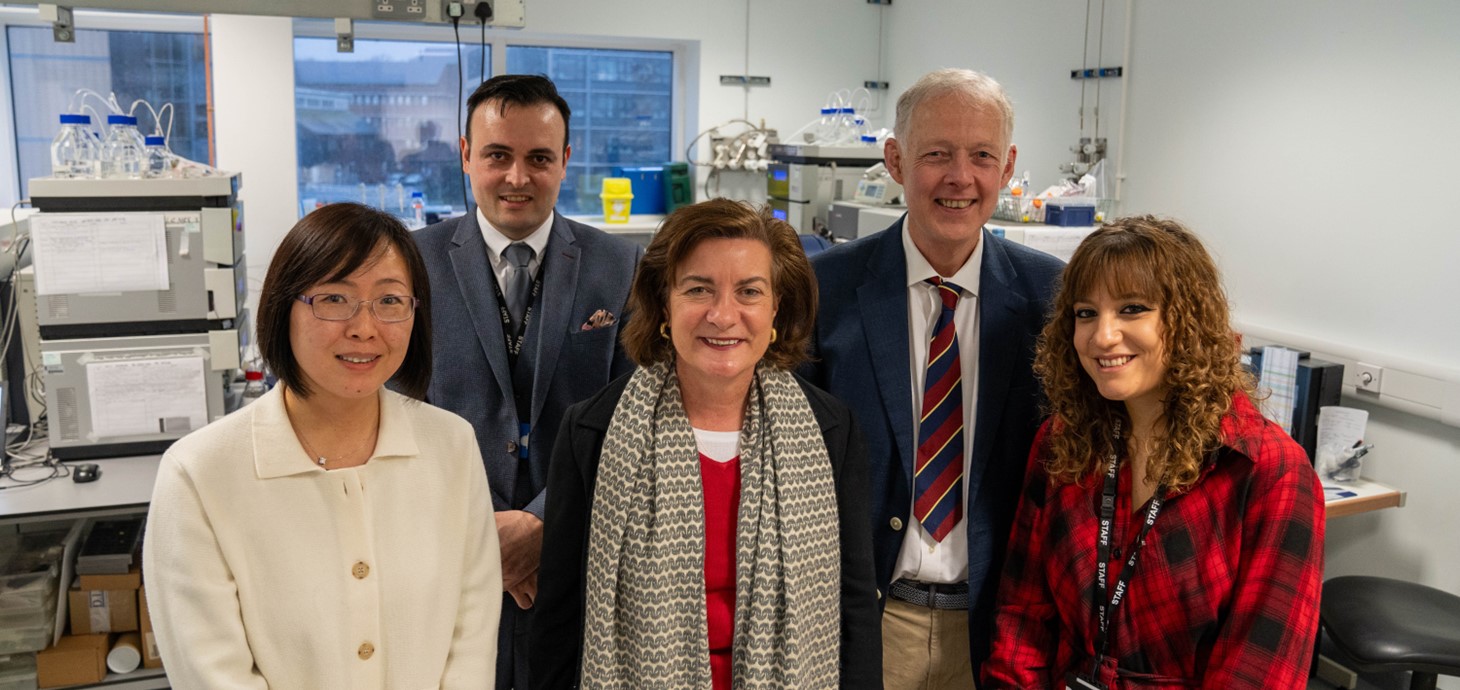
Pictured clockwise from top left: Dr Mohsen Ali Asgari, Prof William Griffiths, Dr Manuela Pacciarini, Eluned Morgan, Minister for Health and Social Services, Prof Yuqin Wang.
Swansea University is playing a key role in a new platform aimed at bringing together UK strengths in the research of rare diseases to develop better and faster understanding, diagnosis and treatment.
Announced earlier this year, the UK Rare Disease Research Platform was established with a £14m investment over five years by the Medical Research Council (MRC) and the National Institute for Health and Care Research (NIHR).
Swansea is now operating one of the platform’s 11 specialist nodes based at universities across the UK offering different specialities. The Swansea node’s goal is to bring mass spectrometry-based lipidomic science into the arena of rare disease research to enable earlier diagnosis, intervention, and improved clinical outcomes.
Officially opening the Swansea node on Thursday 7 December, Eluned Morgan, Minister for Health and Social Services, said: “Research into rare diseases is critical to speed up diagnosis and improve treatments and care and I am delighted Swansea have been awarded MRC funding.
“This is a fantastic achievement for the team and will bring together the right people, patients, stakeholders and technologies to deliver research with greater impact and provide valuable insights into the causes and progression, not only of the diseases themselves, but of more common conditions, to enable the earlier diagnoses, earlier interventions, and improved clinical outcomes we are looking for.”
Professor Griffiths, Director of the Swansea-led node, said: “We are thrilled to have launched the Swansea node today. One of the real academic strengths we have in South Wales is lipidomic research where we look at fats in the body and how they are involved in the heathy functions of the body but when not properly regulated can cause disease.”
Co-investigator Professor Wang said: “The grants from MRC are a real boost to research in Wales and we will work closely with Cardiff University and the University Hospital of Wales along with our partners at UCL and University of Manchester to deliver the projects.”
The UK Rare Disease Research Platform’s aim is to bring together teams with the right people, patients, stakeholders and technologies to deliver research with greater impact.
A rare disease is one that affects fewer than 1 in 2,000 people. However, there are thousands of these conditions, and around one in 17 people in the UK is affected by a rare disease. More than 30 per cent of children with a rare disease die before they are five.
MRC Executive Chair Professor John Iredale said: “The UK has great strengths in rare disease research. The platform will bring people together, link participants to resources and activities in the UK and internationally, and support projects that deliver advances in rare disease research.”
